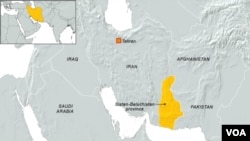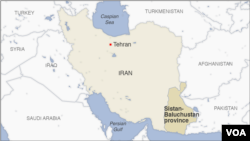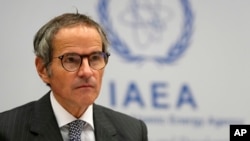
A militant attack near the Pakistani border with Iran left five Iranian forces dead, the state-run IRNA news agency reported Sunday.
The report said the dead were ethnic Baluch members of the paramilitary Revolutionary Guard's volunteer Basij force and were killed in Saravan city in Sistan and Baluchistan province. Saravan is some 1,400 km (870 miles) southeast of the capital Tehran.
No group immediately claimed responsibility for the attack.
Earlier in the day, state TV reported that Revolutionary Guard forces killed three terrorists and arrested nine others in a military operation. The report did not specify which group the suspects belonged to.
Last month, unknown gunmen killed four people, including the chief of the Revolutionary Guard in the province.
In September, gunmen killed four border guards in Sistan and Baluchistan province in two separate attacks. The militant group Jaish al-Adl, which seeks greater rights for the ethnic Baluch minority, claimed responsibility for one attack in which one officer and two soldiers were killed.
The province, which borders Afghanistan and Pakistan, has been the site of occasional deadly clashes involving militant groups, armed drug smugglers and Iranian security forces. It is one of the least developed parts of Iran. Relations between the predominantly Sunni Muslim residents of the region and Iran's Shiite theocracy have long been strained.








